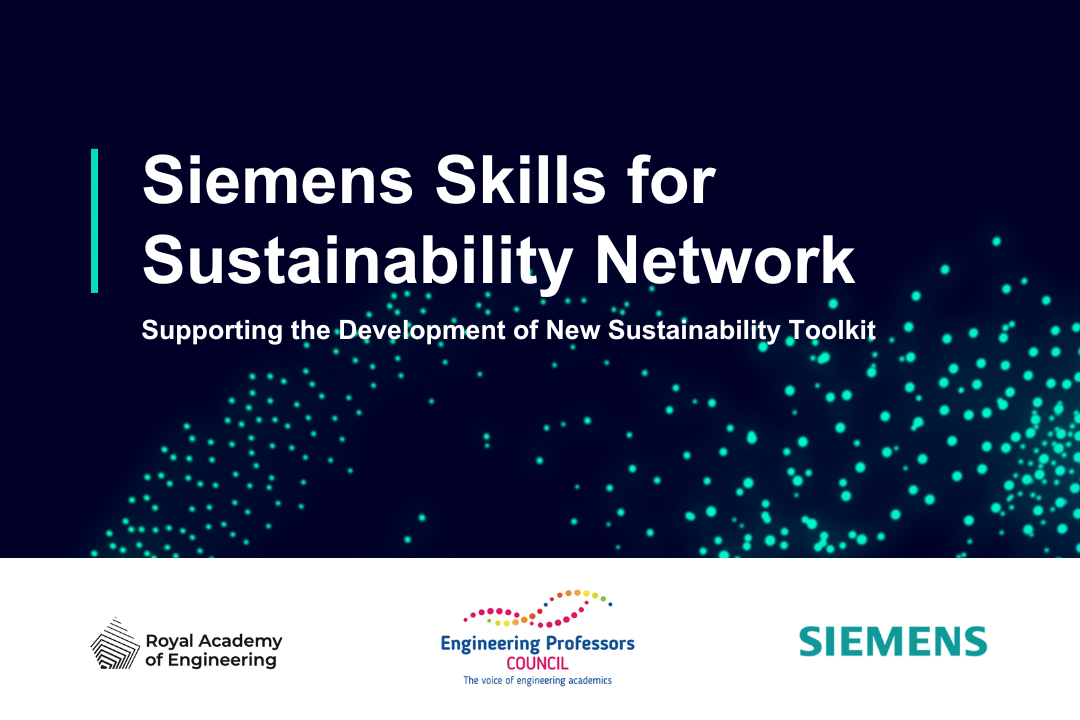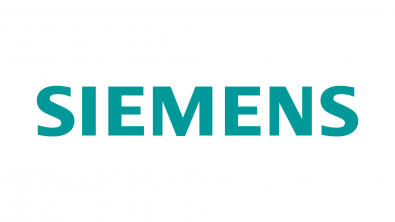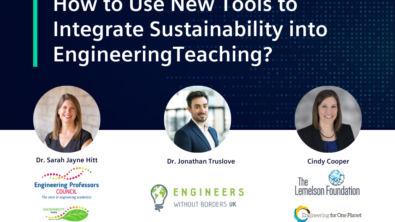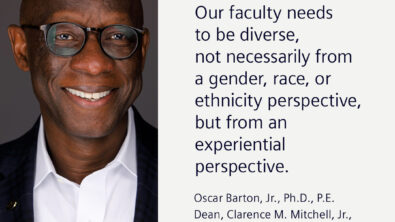Siemens Skills for Sustainability Network Supports the Development of New Sustainability Toolkit

The first Siemens Skills for Sustainability Network global online gathering took place earlier this month. Our work with the network last year demonstrated the urgent need for resources to enable faculty to embed sustainability in their curricula. Responding to that need, Siemens is now working with the UK’s Engineering Professors’ Council (EPC) and the Royal Academy of Engineering to devise a much-needed Sustainability Toolkit.
Due for launch next year, the Toolkit is currently in development phase and will deliver an essential global resource for engineering educators to ensure graduates are fully equipped to take on sustainability challenges.
This gathering enabled Siemens and our partners to capture ideas and insights from a wide range of faculty representing many disciplines and countries. Participants were asked to consider what resources are currently available and what are the most urgent needs facing students and educators right now. Many of these ideas will inspire the content of the Toolkit.
Anna Garton, Siemens Digital Industries Software, is leading the Siemens Skills for Sustainability Network and hosted the gathering. She forcefully highlighted the urgent need for resources and for a change of mindset in educators, industry and students to embed sustainability into education rather than view it as a ‘bolt on’.
Anna commented, “At Siemens, we say that technology drives sustainability, and we know that education drives technology development. It was clear we needed to engage directly with educators to find out what is needed to embed sustainability into the classroom.”
The gathering was a big success, attracting education and industry delegates from around the world. We were joined by Sarah Hitt, Project Manager for the EPC Sustainability Toolkit to take us through the plans.
The group were asked to share their ideas and insights around four key tool areas, looking into resources currently available and where the important gaps are: Understanding, Integrating, Measurement and Assessment and Collaboration. Here are some of the key observations and ideas:
Tools for Understanding, to provide educators the knowledge they need about sustainability issues and skills.
- Incorporate guest presentations, pre-recorded videos and tutorials using real life case studies that explain the relevance of sustainability skills;
- encourage sustainability mindset throughout curriculum;
- ensure holistic view of sustainable objectives;
- Include help with legal frameworks and accreditation.
Tools for Integrating, to help educators weave sustainability into existing curricula.
- Help with integrating problem-solving skills within authentic project context;
- Creation and integration of teaching guides (e.g., Engineering for One Planet framework), bringing together students from multiple engineering disciplines;
- Development of learning outcomes;
- Offer real world challenges with varied global perspectives;
- Create competency-based levels around sustainability, providing problem-solving skills for students;
- Inclusion of societal and ecological context of real-life projects.
Tools for Measurement and Assessment, so that educators can demonstrate relevance and impact.
- Resources for accrediting course work and quality assurance;
- Assistance with recording global indirect impact of projects;
- Looking towards net zero future – ‘Changing the Game’ and One Planet framework examples of good practise;
- Provision of benchmarking targets within curriculum;
- Provide ways of mapping evidence and defining governance process;
- Provide solid assessment criteria for sustainability learning.
Tools for Collaboration, so we can learn from and support each other.
- create interdisciplinary platforms for students to share learnings, breaking down institutional barriers;
- Set up mentorships with industry and other countries / universities;
- Gather resources on global best practise;
- Advise on governance and incentive processes;
- Incentivise sustainability – make it relevant to all students.
Listening to Students and Industry
Sarah highlighted how businesses and industry groups are suffering serious sustainability skills gaps – another reason to reshape engineering education so that it meets the needs of both employers and students.
“We want to see the sustainability knowledge and skillsets woven in everywhere as a sort of golden thread running throughout the engineering curriculum.”
Sarah commented on how a recent surveys revealed 79% of students want sustainable development incorporated across all their courses, not just in engineering, and how much students are calling out for real world activities as the most useful way of learning about sustainability. The Siemens ‘Skills for Sustainability’ survey from November 2022 revealed that only 30% of students had covered the UN SDG’s in their education.
To read the full “Skills for Sustainability” Student Voice report click here.
Dora Smith, Global Director of Siemens Digital Industries Software for Global Academic Program, closed the inspiring session, with this call to action:
“You all are the change agents. How do we bring more people together, not just across engineering disciplines, but in business and other schools? There’s a much broader reach and role that sustainability plays across education as a whole. It’s a big challenge and one we are ready to take on with you.”
Sustainability Toolkit
The toolkit will be open source and will be connected with similar projects to create a global resource for engineering educators. Expected to launch in 2024, the Toolkit is being devised by the EPC with support and funding from Siemens and The Royal Academy of Engineering. Find out more about the toolkit and how you can contribute here!
Join our community and be a force for change!
The purpose of the Siemens skills for Sustainability Network is to foster an exchange of ideas and good practise between academia and industry globally, about how to most effectively embed the skills that engineers need to address sustainability into the engineering curriculum. It is already a valuable community of over 240 members, representing 170 institutions in 40 countries around the world.
Siemens urges more faculty to join the Network and to share this invitation with colleagues. To play your part in this essential initiative, register here.


